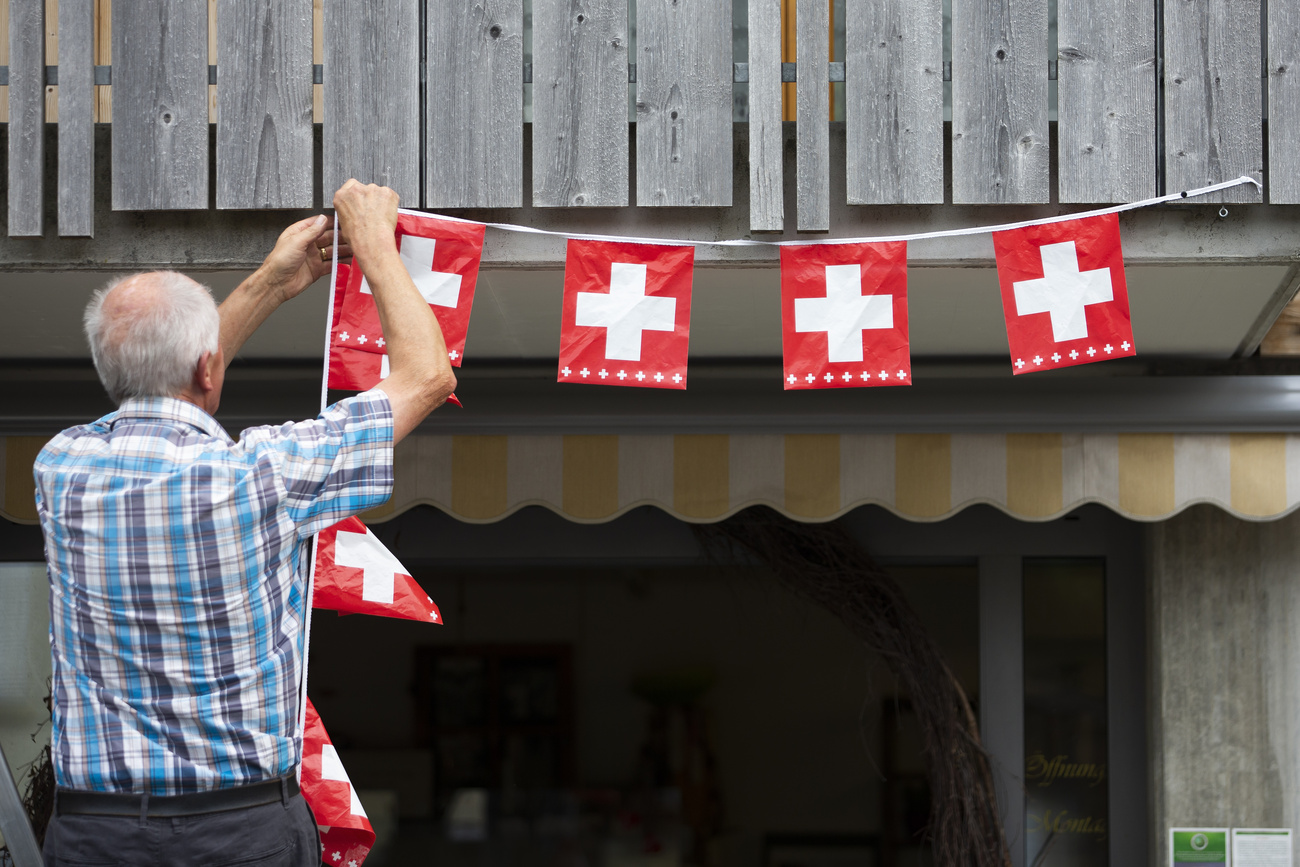
Switzerland called on to improve treatment of asylum seekers

The forced separation of asylum-seeker families and the possible ‘Swiss law instead of foreign judges’ vote came under scrutiny in Amnesty International’s annual report, released on Thursday.
The NGO report focused particularly on the rigid treatment of migrants and asylum seekers which the Alpine nation is sometimes known for.
“The [Swiss] authorities sent back several asylum seekers to other Schengen countries by applying the Dublin regulation (a European Union text that determines which state should process applications) without considering the family bonds of these people in Switzerland,” Amnesty wrote.
They described the case of an Afghan family who were separated and imprisoned in 2016 before being sent back to Norway, a case that the Federal Supreme Court last year ruled had been a violation of the family’s rights.
Denise Graf, coordinator of the asylum division of Amnesty Switzerland, told swissinfo.ch that this was not an isolated case, and that Swiss cantons have only “partly” taken on board the court’s demand that they must find alternative solutions to the separation of families.
“In another case we discovered, a female asylum seeker was imprisoned until deportation while her son was placed alone in a centre,” she said. “Switzerland needs to take family links more into consideration,” she said.
The Amnesty report also noted cases – flagged up by the European Court of Human Rights – in which rejected asylum seekers were sent back to countries including Sri Lanka, Sudan, or Turkey where they would be in danger of suffering severe human rights abuses.
International obligations
It also reiterated the concern voiced by the UN Human Rights Council in August 2017 about the possible future vote on the ‘Swiss law instead of foreign judges’ initiative, which would grant primacy to the federal constitution over international law.
The UN, Amnesty repeated, demanded that Switzerland put in place a control mechanism which ensures that people’s initiatives conform to international law before they are put to the vote.
Amnesty launched the report in Washington DC, in a symbolic move to highlight the concern about the backsliding on human rights of the Trump Administration.
After a year in which discrimination against marginalised groups across the world had become ever more normalised and governments were turning a blind eye, the US stance on such issues represented a dangerous precedent, it said.
“The decision taken in January by the US to ban from its territory travellers from several Muslim-majority countries, an act of clear discrimination, set the tone for a year during which leaders led policies of hate with devastating consequences,” wrote Amnesty Secretary-General Salil Shetty in a press release.

In compliance with the JTI standards
More: SWI swissinfo.ch certified by the Journalism Trust Initiative
















![The four-metre-long painting "Sonntag der Bergbauern" [Sunday of the Mountain Farmers, 1923-24/26] had to be removed by a crane from the German Chancellery in Berlin for the exhibition in Bern.](https://www.swissinfo.ch/content/wp-content/uploads/sites/13/2025/12/01_Pressebild_KirchnerxKirchner.jpg?ver=a45b19f3)










You can find an overview of ongoing debates with our journalists here . Please join us!
If you want to start a conversation about a topic raised in this article or want to report factual errors, email us at english@swissinfo.ch.